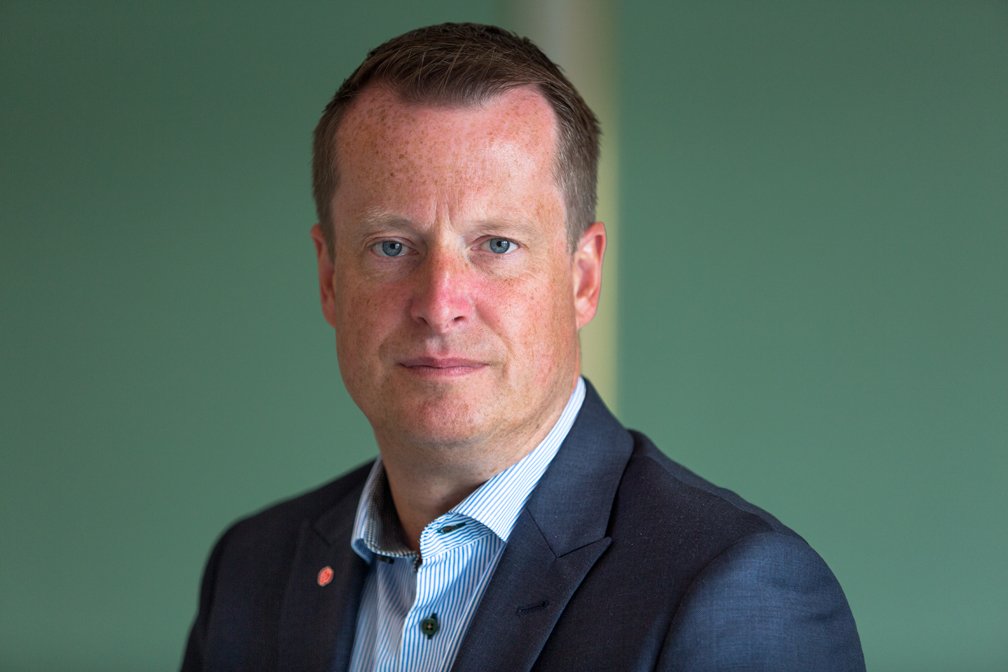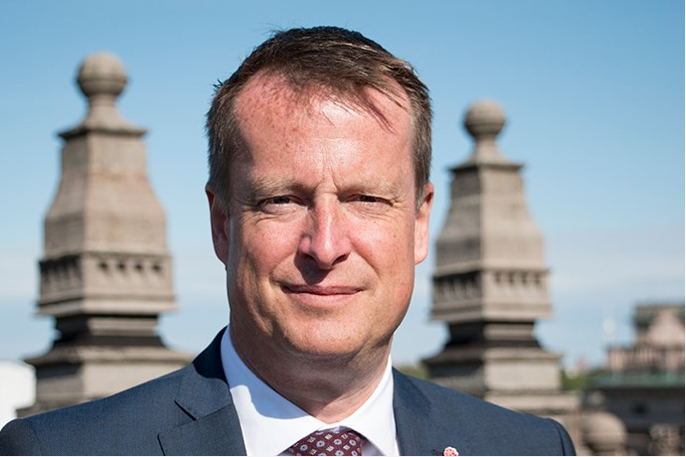Not everyone can remain in Sweden
After years of welcoming refugees through its open doors, Sweden is bursting with a population that may be bigger than its resources can sustain. Now the small Nordic country is making headlines in a new way.
-
 Minister of the Interior (Inrikesminister) Anders Ygeman. Photo: socialdemokraterna.se
Minister of the Interior (Inrikesminister) Anders Ygeman. Photo: socialdemokraterna.se -
-
The acceptance of migrants over the last year has put a lot of strain on a country with a population of less than 10 million. A total of 163,000 people applied for asylum in Sweden last year alone. The government now expects that a large proportion of them will be expelled.
"As part of Sweden having many asylum applications, it’s also a fact that a number of people will have their applications rejected and will have to return to their home countries," Swedish Interior Minister Anders Ygeman recently said during interviews with Swedish media. The proportion of applications that are rejected is around 45 percent, meaning that of the 163,000 cases in 2015 alone, the government expects to deport 60,000 to 80,000 people. But it won't happen immediately. "It will be spread out over a number of years, depending on when they receive their decisions," Sweden’s Minister of Migration Morgan Johansson later clarified, stating that migrants who do not meet the definition of refugee must be expelled. Otherwise the country allows free immigration and that is not sustainable for Sweden, he said.
Quickly scooped up by BBC, Al-Jazeera and Sky News, the comments immediately became top international news in the final week of January.
Anders Ygeman has said that chartering planes is a cost-effective way to return people to their countries of origin and he hopes other European countries, or the European Union, can be a part of this process. The difficulty is getting the countries of origin to take responsibility for their citizens. "I have had discussions with North African countries and we have had a discussion with Afghanistan. And it's a difficult task to get these countries to take responsibility," Ygeman told Swedish Radio.
He estimates the big rise in deportations will come in a year's time, as the Migration Agency makes its decisions on whether the thousands of arrivals to Sweden have the right to stay as refugees. In an interview with news agency TT Anders Ygeman said he has no idea what the likely costs are of this rise in deportations. There will be more controls in the nation and the government also wants to make it harder for people without papers to support themselves. In an interview in daily Dagens Industri Ygeman says there have to be "palpable consequences" for companies that employ undocumented migrants.
The head of the border police, Patrik Engström, has said his force of 1,000 will need to be doubled.
"Most of them work with border checks and carrying out deportations," Engström said in an interview with TT. He added they need to work closer with the Migration Agency, and be on the scene as soon as an asylum rejection is handed out. Earlier in the year the nation’s police commissioner Dan Eliasson requested an extra 4,000 police to deal with rising crime, disturbances at migrant centers and deportations. -
 Minister of the Interior (Inrikesminister) Anders Ygeman. Photo: Regeringskansliet
Minister of the Interior (Inrikesminister) Anders Ygeman. Photo: Regeringskansliet -
-
The tone in Swedish media has changed over the last couple months since the government decided to close Sweden’s borders — as has the opinion of most political parties, with the conservatives, who initialized the open door policy already in 1991, now leading the push for further control and reform to lower the cost of migrants. It has become acceptable to talk about problems, both in terms of integration, cultural differences and the societal cost of large volume immigration.
Overall tension in Sweden has increased after reports of organized migrant sex attacks at a festival in Stockholm - Police and media cover up? - and the January murder of an employee at a refugee center for youth outside Mölndal in Göteborg. The 22-year-old refugee worker was stabbed to death during a quarrel among residents. A teenage Somali migrant has been arrested in the case, though Swedish authorities have not been able to confirm his identity. The lack of documents becomes an issue for the criminal system, but given the volume of migrants arriving without papers, it also adds another level of difficulty for the migration authorities; many of those that are rejected for asylum lack identity documents, according to the Migration Board's COO Michael Ribbenvik. "Roughly speaking, about a third of those who are rejected are so-called difficult cases where the individual refuses to leave and where you do not have any documents that are sufficient to execute the deportation," Ribbenvik said.
If a person has no documents the country of origin will not accept his return since they cannot be sure that it is their citizen. -

-
-
